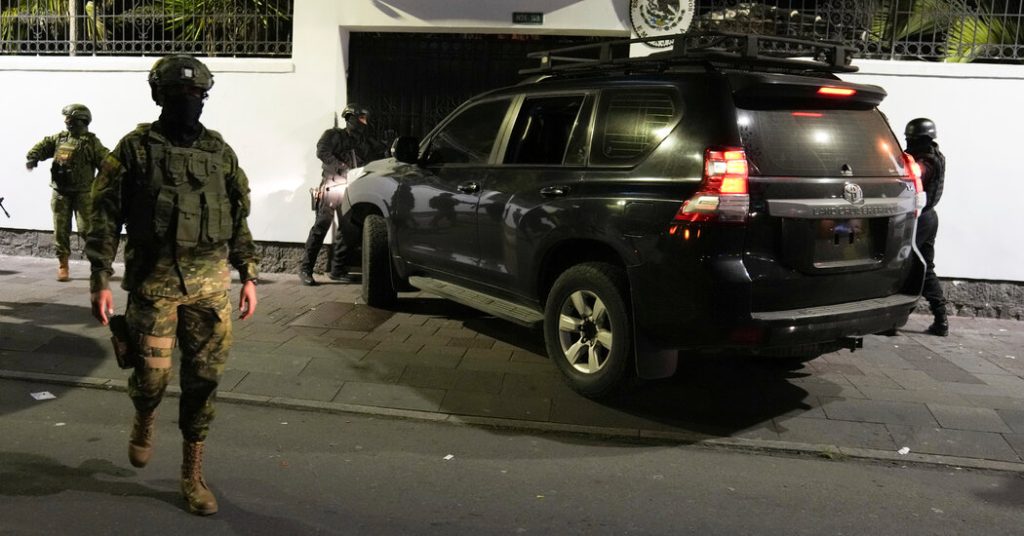Ecuadorean police officers entered the Mexican embassy in Quito to arrest Ecuador’s former vice president, Jorge Glas, who had been sentenced to prison. Mexico had granted him asylum, prompting Ecuador to suspend bilateral relations. Glas had been living at the embassy since December and was granted political asylum shortly before his arrest. Ecuador’s presidential office stated that no criminal could be considered politically persecuted, and the arrest was made because Mexico had abused the immunities and privileges of the diplomatic mission.
After the arrest, Mexico’s president, Andrés Manuel López Obrador, condemned the action as a violation of international law and Mexico’s sovereignty. He stated that Ecuadorean police had forcibly entered the embassy, leading to injuries to Mexican diplomatic personnel. As a result of the incident, Mexico declared the breaking of diplomatic relations with Ecuador. The arrest of Glas and the subsequent fallout between the two countries has escalated tensions and raised concerns about diplomatic protocols and international law.
The Mexican government’s response to the arrest and the suspension of bilateral relations with Ecuador highlights the seriousness of the situation. The incident has the potential to strain diplomatic relations between the two countries, leading to further complications in the future. The actions taken by both governments in response to the incident will likely have far-reaching implications for their diplomatic interactions and cooperation on various issues.
The repercussions of the arrest of Jorge Glas go beyond just diplomatic relations between Mexico and Ecuador. The involvement of the Mexican embassy and the violation of diplomatic immunities raise concerns about the sanctity of diplomatic missions and the protection of individuals seeking asylum. The case sheds light on the challenges faced by countries in balancing their legal obligations with political considerations when it comes to granting asylum and dealing with individuals facing criminal charges.
As the situation continues to develop, it will be crucial for both Mexico and Ecuador to handle the aftermath of the arrest of Jorge Glas with care and consideration for international law and diplomatic norms. The incident has drawn attention to the complexities of asylum and extradition cases, as well as the role of diplomatic missions in providing sanctuary for individuals seeking protection. The resolution of this conflict will likely require diplomatic negotiations and discussions to address the grievances and concerns of both countries.
In conclusion, the arrest of Jorge Glas at the Mexican embassy in Quito has sparked a diplomatic dispute between Mexico and Ecuador, leading to the suspension of bilateral relations. The incident has raised questions about the treatment of individuals seeking asylum and the sanctity of diplomatic missions. As both countries navigate the aftermath of the arrest, it is essential for them to uphold international law and diplomatic protocols to prevent further escalation of tensions. The case serves as a reminder of the delicate balance between legal obligations and political considerations in asylum and extradition cases involving high-profile individuals.


